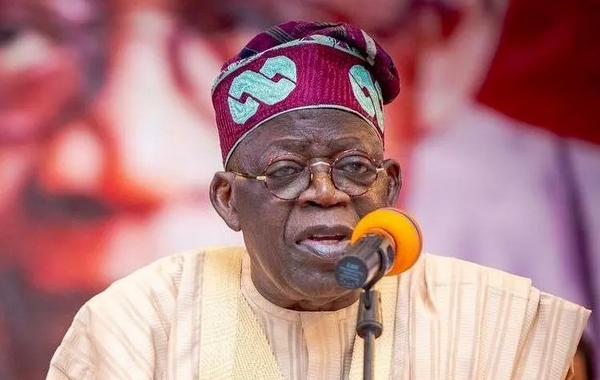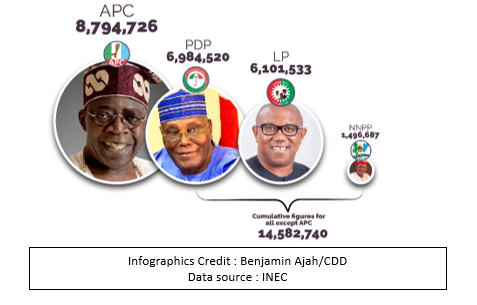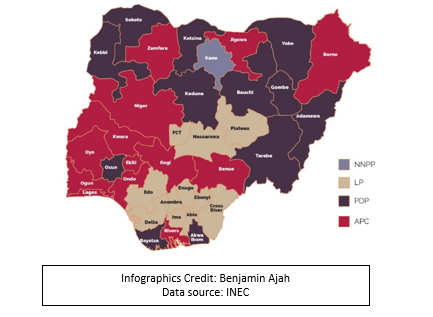

Pelumi Obisesan
Despite the controversy that trailed his candidacy, the Independent National Electoral Commission (INEC) declared Tinubu the winner of the keenly contested February 25th election. Amidst preparation for his swearing-in on May 29, 2023, the outcome of the election remains a subject of controversy and is being challenged in court by the runners-up – Atiku Abubakar of PDP and Peter Obi of Labour Party.
In a previous article, I submitted that the 2023 Presidential elections would be markedly different due to the following factors: the emergence of a third force with matching political clout, the ethnic representation of the front runners, cross-party endorsements, the extent and nature of youth involvement, widespread insecurity and attacks on electoral infrastructure. This article analyses how the aforementioned factors played out at the polls and their implications for Tinubu’s presidency and the future of Nigeria’s democracy.
The unprecedented viability of the third force
The results of the election as declared by INEC evidence that the front runners garnered significant following across the country. Though the elections did not result in a rerun, the viability of the third force is mirrored in the close win margin among the first three front runners.

In Nigeria’s electoral history post-1999, the 2023 elections see the closest win margin between an elected candidate and contenders, With less than 2 million votes ahead of his closest rival, Bola Ahmed Tinubu was announced winner of the 2023 elections. The closest margin to this in electoral history was the 2011 elections when the incumbent Goodluck Jonathan was unseated by Buhari who garnered over two million votes more. The showing of the third force candidates, Peter Obi and Rabiu Kwankwanso, the respective candidates of the Labour and NNPP parties was remarkable. Peter Obi, mopped up over 6 million votes at his first attempt scoring only about 800,000 votes less than his PDP opponent who finished second at the polls while Rabiu Kwankwanso garnered over one million votes.
An increasingly divided electorate
While affective voting is not novel in Nigerian politics, the 2023 elections saw it descend to new lows. The ethnic and religious identities of the front running candidates – Peter Obi, an Igbo, Bola Tinubu, a Yoruba, Atiku Abubakar and Rabiu Kwankwanso Hausa/ Fulani – shaped the result of the elections as predicted. A cursory glance at the geopolitical zones each candidate excelled in will reveal this much.
Tinubu won 12 states, including 4 of the 6 states in the Yoruba-dominated Southwest. Peter also won all five states in the Southeast being the only candidate to reach the 25% requirement in those states while Atiku Abubakar won most of the states in the North including Adamawa, his home state. Despite the increasing attachment to identities, cross-identity and cross-platform endorsements were also significant to the result of the Presidential elections. For instance, the APC-Tinubu win in Rivers state cannot be explained without referencing the support from Nyesom Wike, Governor of Rivers state and leader of the PDP G5 governors who alienated themselves from their party’s candidate due to their insistence that Nigeria’s next President should be from the south.
In Benue, Tinubu, a Muslim from the Southwest aligned with the APC gubernatorial candidate, Father Hyacinth Alia, a Christian from the North Central. This alignment was central to Tinubu’s narrow win in Benue state. Implicit in the results of the Presidential election are the many lines along which Nigerians are now divided.

The Controversial Candidate who won
The campaign period saw the candidates’ character and past being on trial with Tinubu’s candidacy was the most affected. In July 2022, David Hundeyin published a story that alleged he was involved in illicit narcotics trade for which he had to forfeit a sum of $460,000. He was also associated with the Lekki toll gate #EndSars killings of October 2020, and challenged for the fuzziness around his background and education history.
The foregoing undoubtedly affected his popularity and alienated a part of the population that would have otherwise voted for him. His popularity, especially among the youths dwindled to the extent that majority of his supporters had to support him quietly. Many of them only public showed their support after the results were declared in his favour. Though he won, his relative unpopularity reflected in the way the votes were cast.
For instance, the APC-Tinubu win in Rivers state cannot be explained without referencing the support from Nyesom Wike, Governor of Rivers state and leader of the PDP G5 governors who alienated themselves from their party’s candidate due to their insistence that Nigeria’s next President should be from the south
With 5 million votes less than the 14 million votes cumulatively acquired by the opposition, Bola Ahmed Tinubu emerged winner of the 2023 Presidential election. This is a first in the 4th republic that was made possible by overly fragmented allegiances inspired by a fragmented opposition. Taking the instance of past two electoral cycles, in 2019, the incumbent President Buhari won 15,191, 847 votes garnering over 3 million votes than the opposition’s cumulative vote. In 2015, the total cumulative votes obtained by the opposition was 13,162,643 against Buhari’s 15,424,921 – over 3,292,185 votes more than the opposition.
Though he was not the obvious first choice for approximatively 63% of those who voted, Bola Tinubu has an enormous task ahead; to allay fears, build trust and bridges across the divides in the country. With his two runner-ups in court and the Department of State Services (DSS) recently confirming a plot by unnamed actors towards an interim government, it remains to be seen how his election will impact democracy in the country.
A multi-party democracy?
The results of the 2023 elections are also unprecedented for the National Assembly which upon its inauguration will be able to boast of a multi-party democracy with 9 political parties represented. It will be the most diverse national Assembly in the 4th republic. This allows a wide range of representation while preventing a single political party from dictating the country’s legislative direction without opposition. However, this dynamic may be short-lived given the propensity of Nigerian politicians to cross-carpet.
Lowest voter turnout in the fourth republic
Contrary to expectations that built up considering the high level of civic engagement that preceded the 2023 elections, the 2023 elections recorded the lowest voter turnout in the fourth republic. From a voter turnout of 35% in 2019, there was a drop to 27% – sharpest decline in the 4th republic. Reasons advanced for this include the mass exodus of eligible voters and voter suppression strategies employed by political actors.
His popularity, especially among the youths dwindled to the extent that majority of his supporters had to support him quietly. Many of them only public showed their support after the results were declared in his favour. Though he won, his relative unpopularity reflected in the way the votes were cast
Contrary to widespread expectations, Election Day violence was not rooted in prevalent insecurity which had characterized the lead up to the elections. It was mainly violence inspired by political actors who wanted to sway the ballot in their favour. In the Surulere, Ikate, and Ajah areas of Lagos state, for example, voting was disrupted with some ballot boxes set ablaze. Nonetheless, the attacks on INEC’s facilities and personnel in the lead up to the elections had a definite impact on the electoral process with significant logistical challenges experienced in some parts of the country especially in the Southeast according to CDD election observers. According to INEC, the region also had had the highest rate of attack on electoral infrastructure.
The Failures of Technology or INEC
The 2023 elections were the first time biometric and results viewing technology were used for nation-wide elections. The commission’s aptitude with technology in off-cycle elections that preceded the general elections seemed to geometrically increase the electorate’s confidence in the electoral process. Since February 25, however, accusations of rigging and manipulation trail the Presidential elections and despite the use of technology, credibility questions have emerged about the process especially in regards to what can be described as a lack of transparency on the part of the electoral umpire.
As trust in the technology wanes, a simultaneous decline of trust in the Commission is resulting. This could cause a draw back for Nigeria’s democracy and general trust in the democratic process. This is evidenced by the electorate’s disenchantment that played out during the gubernatorial elections where many who had voted during the Presidential election decided to abstain from the polls because they were convinced that their votes will not count.
The first and second runner ups are challenging the Presidential elections in court criticizing the elections on many grounds including voter suppression, intimidation, INEC’s shortcomings as well as the suitability of the President elect’s candidacy given his alleged history in the illicit drug trade. While these elections have challenged many status quos, it remains to be seen how a controversial winner will succeed in the complex task unifying a divided Nigeria and delivering on the dividends of democracy.
Photo credit : todaynewsafrica.com
A PhD candidate at SOAS, University of London, Pelumi Obisesan is interested in research themes around the impact of conflicts and crises on women and girls in Sub-Saharan Africa. Using a decolonial feminist lens, her current research focuses on women’s experiences and perspectives of transitional justice measures implemented against the background of the Boko Haram crises in the Lake Chad Basin.
